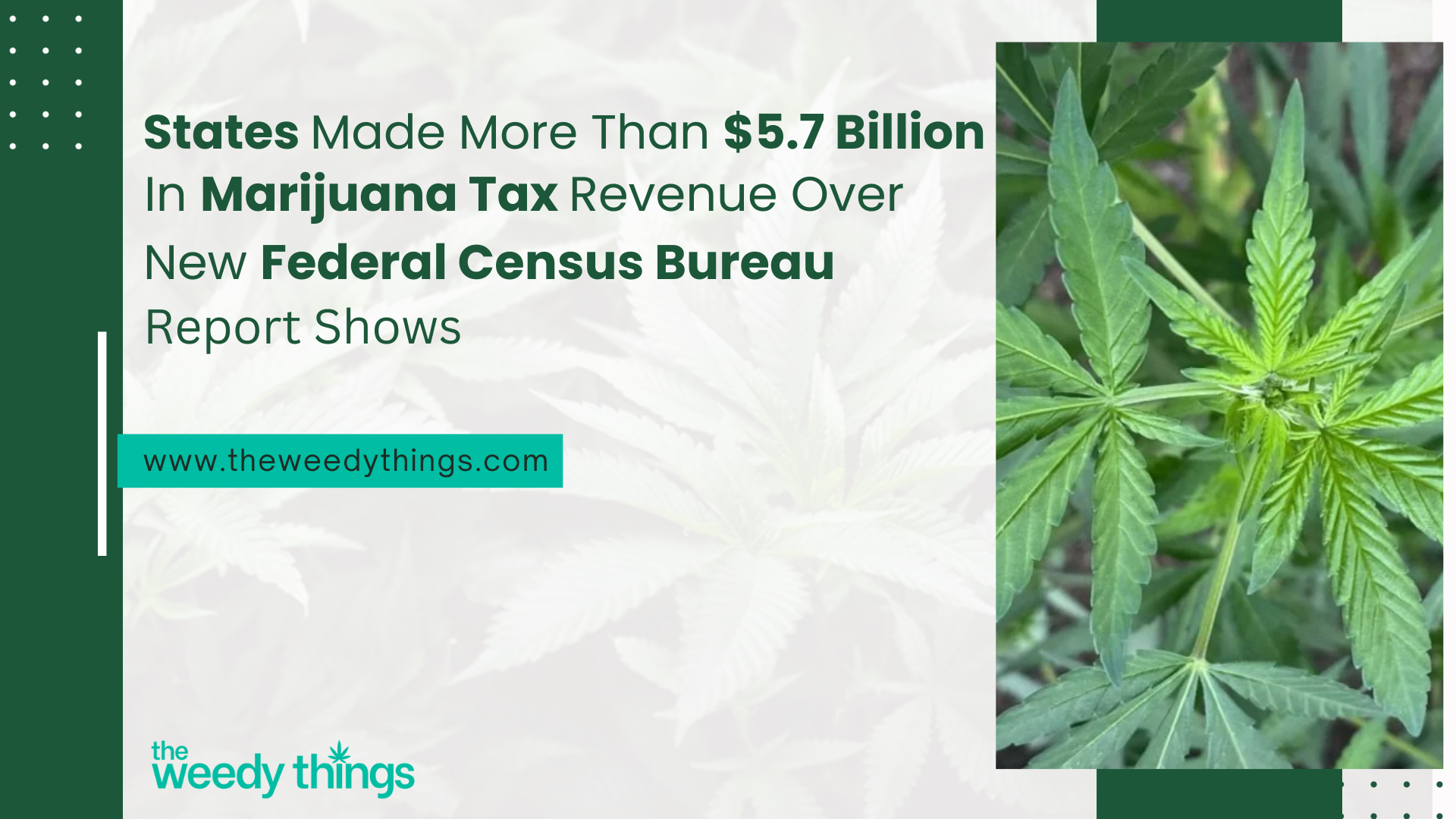In recent years, the legalization of cannabis for both medical and recreational use has gained momentum across the United States. As more states embrace this shift in policy, a new report from the Federal Census Bureau has shed light on the financial windfall that legalizing marijuana can bring. The report reveals that states generated over $5.7 billion in tax revenue from marijuana sales during an 18-month period. This revenue not only bolsters state budgets but also reflects the significant economic potential of the cannabis industry.
The Economic Impact of Legalizing Cannabis
One of the primary drivers of cannabis legalization has been the potential for economic growth and revenue generation. States have been quick to recognize the fiscal benefits of legalizing and taxing marijuana, and the recent Census Bureau report provides concrete evidence of this phenomenon.
The revenue generated from cannabis sales goes toward various essential services, including education, public health programs, infrastructure development, and law enforcement initiatives. In addition, the newfound tax revenue alleviates the burden on taxpayers and provides governments with additional resources to address pressing issues.
Key Findings from the Report
The Federal Census Bureau’s report highlights several key findings regarding marijuana tax revenue:
$5.7 Billion in Tax Revenue: Over the 18-month period covered by the report, states collected a staggering $5.7 billion in tax revenue from legal marijuana sales. This substantial sum underscores the economic significance of the cannabis industry.
Variation Among States: The report reveals that tax revenue varies significantly among states. This variance is due to factors such as the size of the legal market, tax rates, and the extent of cannabis legalization (medical, recreational, or both).
Job Creation: Legalizing cannabis has led to the creation of thousands of jobs, from cultivation and manufacturing to retail and distribution. These employment opportunities contribute to local economies and reduce unemployment rates.
Reduced Black Market Activity: Legalization and regulation have significantly diminished black-market cannabis sales. This not only ensures product safety but also allows states to redirect law enforcement resources toward more pressing issues.
The Success Stories of Legalization
Several states have emerged as success stories in terms of cannabis taxation and regulation. One such example is the state of Colorado, which legalized recreational marijuana in 2014. Colorado has consistently been a frontrunner in terms of cannabis tax revenue, funneling millions of dollars into education, infrastructure, and public health programs.
Similarly, the state of California, with its robust legal cannabis market, has seen substantial tax revenue growth since recreational legalization in 2018. This revenue has helped offset the initial costs of implementing the regulatory framework and continues to contribute to the state’s coffers.
The Role of Local Dispensaries and Delivery Services
Local cannabis dispensaries and delivery services play a crucial role in the success of legalized cannabis markets. These businesses not only contribute to tax revenue but also provide safe and convenient access to cannabis products for consumers.
For instance, the Mohawk Cannabis Store in Canada and Grasslife Canada have been pivotal in the legal cannabis landscape. They offer a wide range of products, from flower and concentrates to edibles and topicals, ensuring that consumers have access to the cannabis products that best suit their needs.
The Future of Cannabis Tax Revenue
As more states in the U.S. and countries worldwide explore cannabis legalization, the potential for tax revenue growth remains promising. The cannabis industry has shown resilience in the face of economic challenges, making it an attractive option for governments seeking to bolster their finances.
It is essential for lawmakers to strike a balance between taxation and regulation to ensure that legal cannabis remains competitive with the black market. Reasonable tax rates and effective regulation can help maximize tax revenue while providing consumers with safe and regulated products.
The recent report from the Federal Census Bureau underscores the financial benefits of legalizing and taxing cannabis. With over $5.7 billion in tax revenue generated over an 18-month period, the cannabis industry has proven to be a valuable source of income for states across the U.S. This revenue not only supports vital public services but also reflects the economic potential of the industry.
Local dispensaries and delivery services, such as the Mohawk Cannabis Store and Grasslife Canada, have played a pivotal role in providing consumers with legal and regulated access to cannabis products. Additionally, cannabis delivery services in regions like Grande Prairie and Montreal offer convenience and accessibility.
As more states and countries explore cannabis legalization, the economic impact and revenue potential of the industry will continue to evolve. By carefully crafting taxation and regulation policies, governments can harness the full potential of the cannabis market while ensuring public safety and well-being.
Frequently Asked Questions
Over 18 months, states amassed $5.7 billion in marijuana tax revenue.
Various states with legalized marijuana markets, such as California and Colorado, contributed to the substantial tax revenue.
The report covers an 18-month period, showcasing the sustained financial impact of legalized marijuana across multiple states.
States allocate marijuana tax revenue to various areas, including education, healthcare, and public services, benefiting communities.
The significant tax revenue highlights the economic benefits of legalized marijuana, contributing to state budgets and public services.




